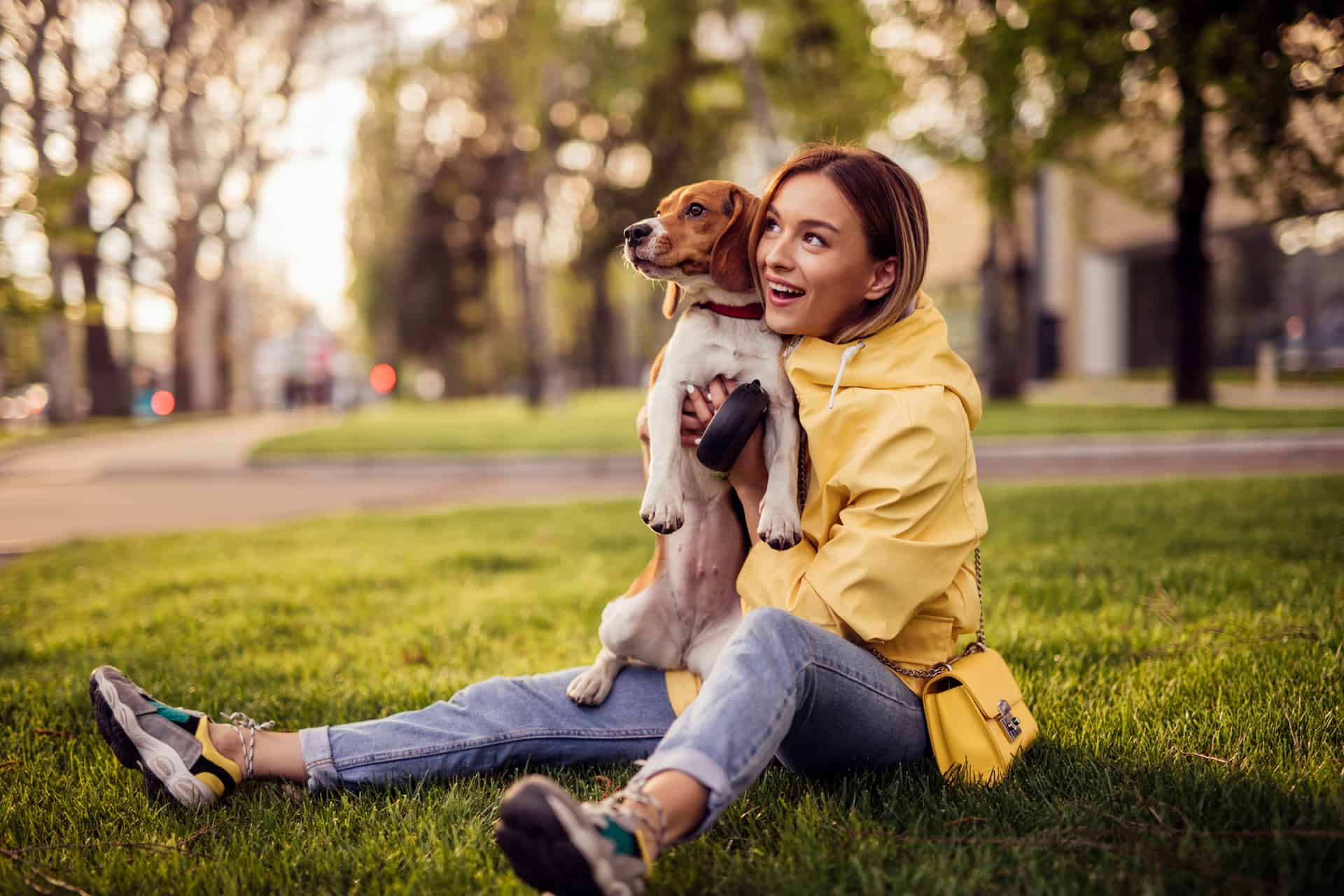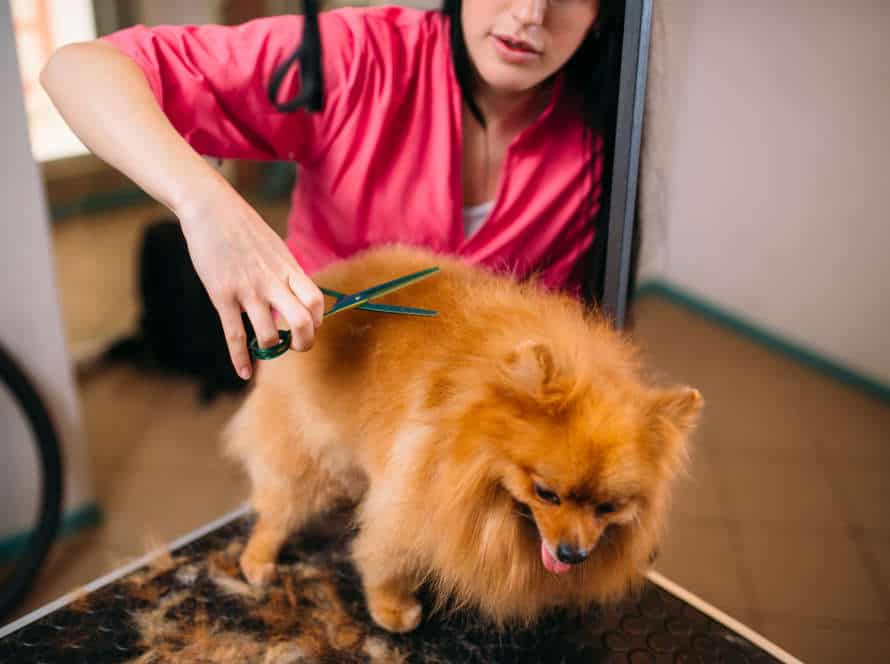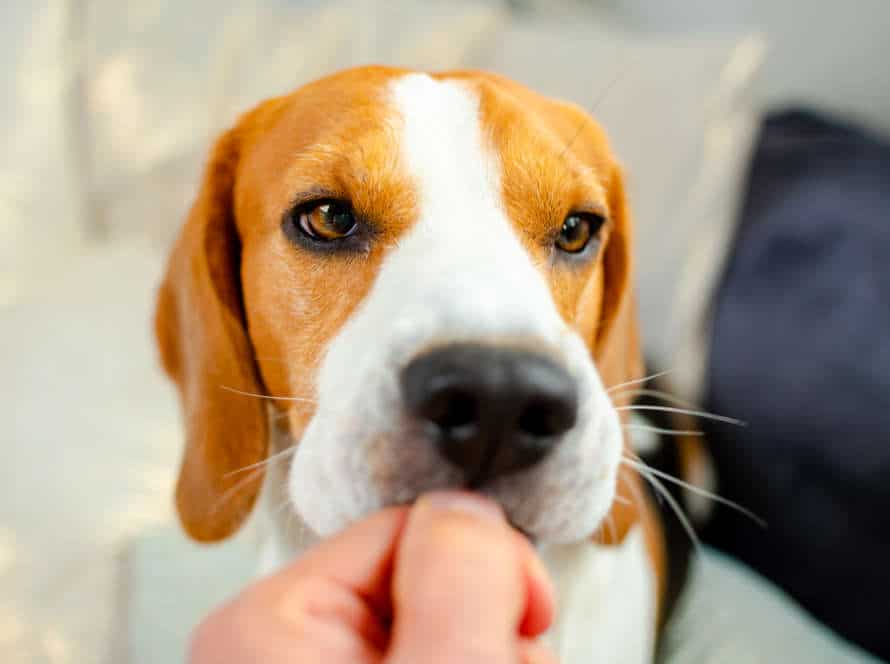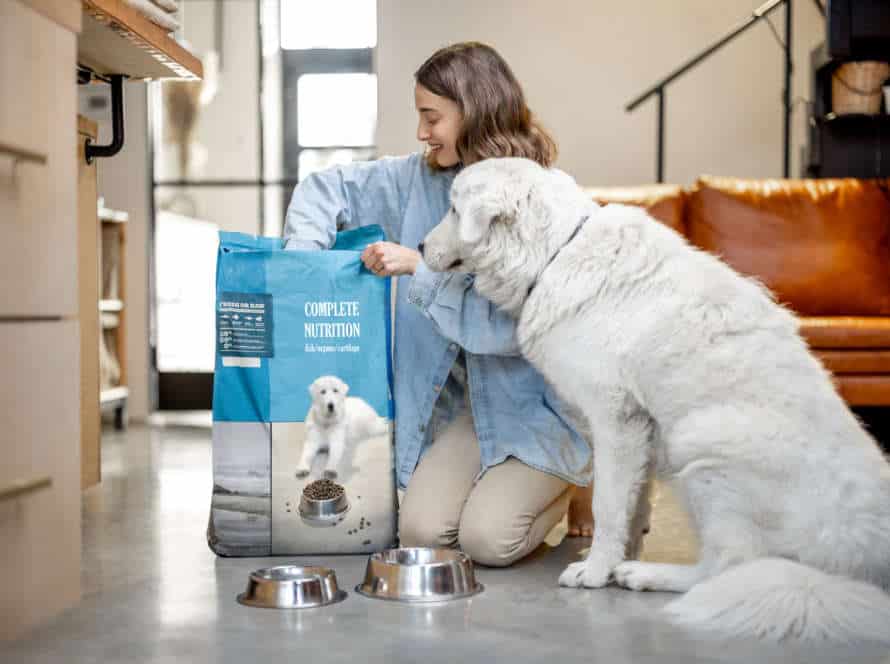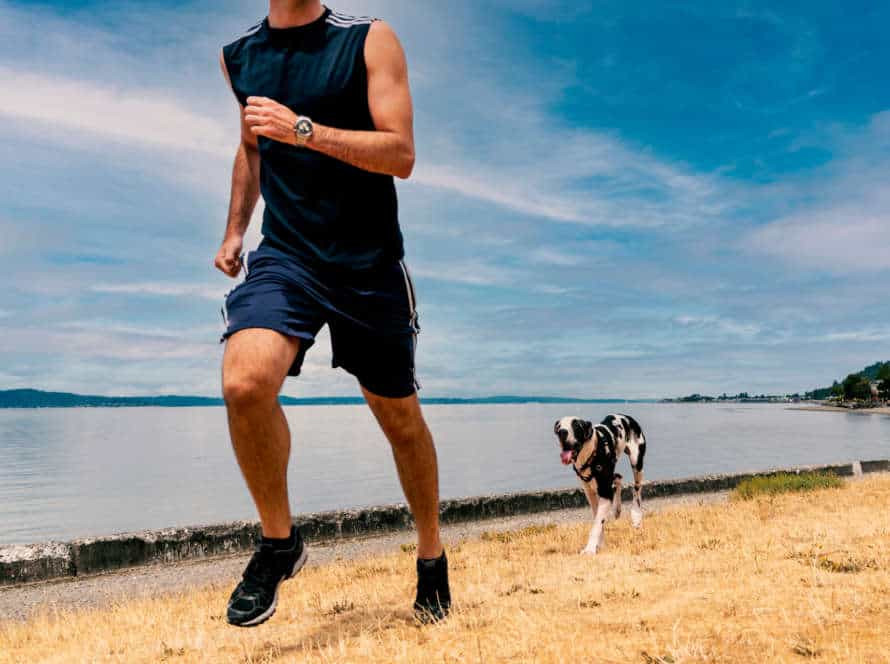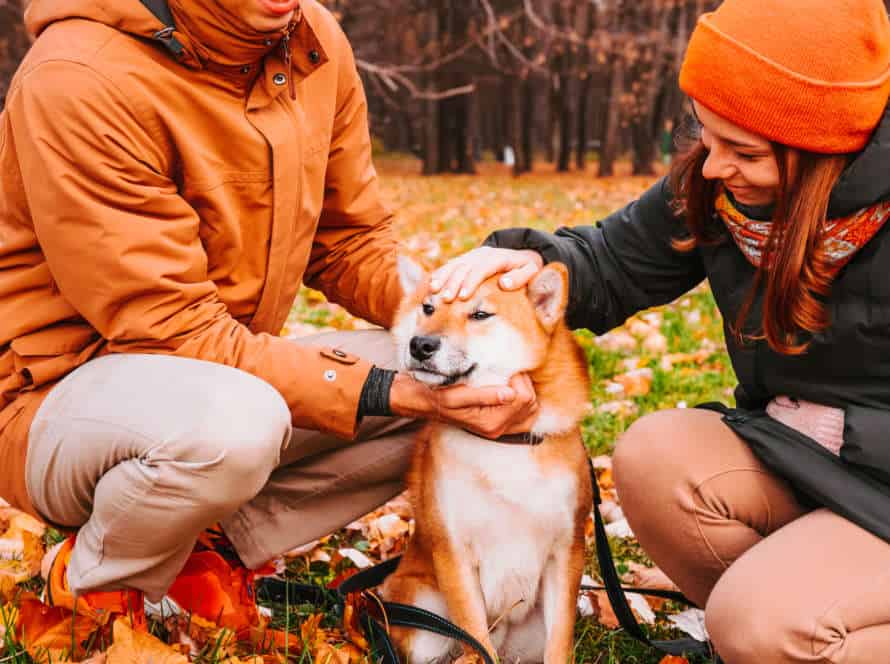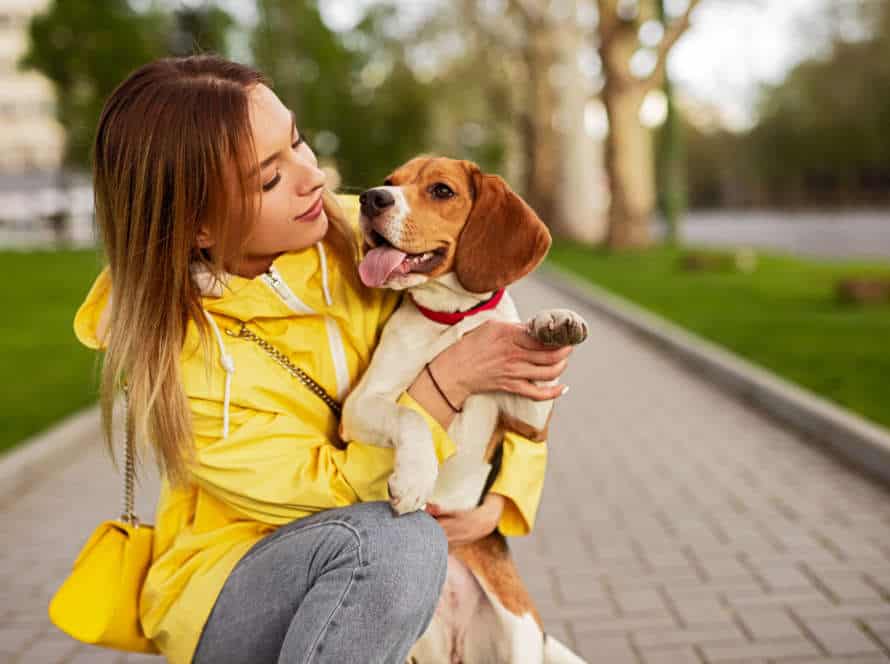Adult Dog Trust: Tips for Building a Stronger Connection
Gaining trust with your grown-up pup is an essential part of deepening your connection with your furry pal. Here are some tips to help you build trust and become closer to your adult dog:
- Set a schedule: Dogs like routine and do well with one. Establish a regular plan for feeding, walking and playtime – this will create trust between you and your pup.
- Use positive reinforcement: Rejoice good behaviour instead of punishing the bad one. Rewards and verbal appreciation go a long way in creating trust and reinforcing good behaviour.
- Spend quality time: Spend quality one-on-one time with your pup, like cuddling, playing or grooming, to construct a stronger emotional connection.
- Socialize your pup: Getting your pup to meet people and other dogs can help strengthen their self-assurance and trust in you as their owner and leader.
By following these tips, you can make trust and form a stronger bond with your adult pup which will make for a happier and more fulfilling relationship for both of you.
Understanding Your Dog’s Emotional Needs
Grasping your pup’s emotional needs is key to having a strong bond. Dogs are sensitive creatures and feel their owners’ emotions. Knowing their feelings will help you trust each other more. Let’s delve deeper.
Recognizing stress signals in dogs
It’s important for dog owners to understand the signs of stress in their pup. Here are some common ones:
- Yawning: Stress can be the cause, not just sleepiness or boredom.
- Panting: Rapid, shallow breaths with their tongue out and mouth open.
- Shaking off: Just like a wet dog shakes off water, they could be trying to shake off tension.
- Licking lips: Similar to how humans bite their nails, this is a sign of nerves.
- Ears back: Flattened against their head can mean fear or stress.
Pro tip: If your dog displays any of these signs, take them away from the stressful situation and comfort them with calming words and gentle touches.
Understanding body language and communication
Get to know your adult dog better by understanding their body language and emotions. Dogs use their bodies to show how they feel, what they want, and what they mean.
Check their ears, tail, and posture. A tense body, back-pressed ears, and tucked tail mean fear or worry. On the other hand, a loose body and wagging tail mean happiness or enthusiasm.
Their eyes and facial expressions can also tell you a lot. Dilated pupils and a tight face can indicate aggression or fear. Loose muscles and a soft gaze mean they’re relaxed.
Learn to recognize the different vocalizations they make. Barking, growling, whimpering, and whining all have different meanings.
Knowing their needs and body language will help you create a stronger bond and trust with them. This is key to effective communication.
Building trust through positive reinforcement training
Positive reinforcement training can construct a strong bond with your adult dog. Here are some tips for you:
- Treats, toys and praise your pup for good behavior, instead of punishing.
- Be consistent in your commands and techniques, and make sure all family members are following the same approach.
- Notice your pup’s feelings and be aware of their body language and cues. Create a safe and pleasant space for them.
- Express affection and love to your pup outside of training, this will improve the relationship between you and your pup.
Ways to Build Trust with Your Adult Dog
Gaining your adult dog’s trust is key for a solid, healthy bond. Creating consistency and respect is the ideal way to achieve this. Here are some tips to aid you in building trust with your adult pup and forming a stronger connection:
Consistency in training and routines
Consistency in training and routines is key to gaining your adult dog’s trust. It creates a clear communication line between you and your dog, making it easier to comprehend and obey commands. Here are some tips to build a stronger relationship through consistency in training and routines.
- Make a regular routine – Design a routine for nourishing, exercising, and training your dog. This way, your dog will know what to expect, and you can organize your day around your pup’s needs.
- Keep commands constant – Utilize consistent commands to communicate with your dog. This eliminates confusion and helps your pooch comprehend what you anticipate from it.
- Reward system – Apply a reward-based training system such as positive reinforcement, which encourages good behavior and bolsters trust between you and your dog.
- Training methods – Go on practicing the same training methods, and only switch to a new technique when necessary. This consistency reinforces the communication channel between you and your dog.
By following these tips, you’ll be able to gain your dog’s trust and strengthen your bond.
Pro Tip: Consistency and repetition are fundamental, however, remember that each dog is unique, and their training and routine should mirror that uniqueness.
Quality time and attention
Humans and dogs both need quality time and attention to build trust. Here are some tips to do that:
- Spend time with your pup doing activities they love, like walking, fetch, and cuddling.
- Look out for their body language and respond to their needs and feelings.
- Teach them commands and tricks using rewards and compliments.
- Show them physical love through petting and cuddling.
- Don’t punish them for bad behavior, use positive reinforcement instead.
- Keep a routine and stick to it.
- Invest quality time and attention in your adult dog for a strong bond and trust – and a happy relationship!
Being a confident and calm leader for your dog
Leading with confidence & calm is key when forming trust with an adult pup. Here’s some tips to keep in mind when working towards a stronger connection:
- Set boundaries & routines; dogs love consistency, make a plan & stick to it.
- Use positive reinforcement; like treats, toys, or words of praise can assist in reinforcing good behavior.
- Communicate well; use a gentle but firm tone, eye contact, & body language to get your point across.
- Be patient & understanding; building trust takes time & effort, so be patient & get to know your pup’s needs & personality.
Remember, dogs are pack animals & look to their leader for guidance & safety. Be confident, stay calm, & consistent to build a bond of trust & respect with your furry friend.
Activities to Build Trust
Gaining trust from an adult pooch can be hard, yet fruitful when done correctly. Building a trusting relationship between you and the canine is vital. That way, you both can be joyous and vigorous in your connection. To do this, there are loads of activities you can do together to build trust and strengthen your bond.
Let’s look at a few of these activities that you can do to foster this connection:
Exercise and playtime to build a bond
Exercise and playtime are key for creating trust and forming a bond between adult dogs and humans. Not only does exercise keep your pup fit and lively but it also helps to communicate better, reinforces obedience, and brings you closer.
Here are some ways to build trust:
- Take your pup on walks and runs to get some exercise.
- Fit in playtime with activities like fetch or tug-of-war to work both the body and mind.
- Train commands such as sit, stay, or come to improve communication.
- Reward good behavior with treats or words of praise to reinforce trust.
- Let your pup stay close or sleep in the same room for a feeling of security.
Pro tip: Building trust takes time and patience! Be consistent with exercise, playtime, and training to make the bond between you and your pup stronger.
Teaching new tricks and behaviors for mental stimulation
Teaching new tricks and behaviors is a great way to give your pup mental stimulation. Plus, it builds trust and strengthens the bond between you and your dog.
Some ideas:
- Roll Over: Get them to lie down first. Then guide them to roll over. Give treats and praise when they do it right.
- Shake: Hold out your hand and say “shake”. Treat and praise when they offer their paw.
- High Five: Same technique as shake. Just say “high-five” and hold your hand a bit higher. Treat and praise when they touch your hand.
- Fetch: Get your pup to retrieve a toy or ball. Reward them with a treat & praise when they bring it back.
Remember: Train with patience and positive reinforcement. This will help build a strong bond and trust.
Socialization with other dogs in controlled settings
Socializing adult pooches in managed settings can build trust and their bond with their humans. Here are some trust-building activities:
- Go for group walks – Walking with other dogs in a managed setting can help your pup gain confidence and strengthen their relationship with you.
- Visit a dog park – Dog parks offer a great chance for your furry friend to socialize with others, while you supervise.
- Attend obedience classes – Obedience classes together can teach your pup training abilities and provide socialization possibilities.
- Playdates – Set up playdates with other owners and their dogs for supervised socialization.
By socializing your dog with other canines, you’re aiding them in forming trust and a stronger bond with you as their owner.
Mistakes to Avoid
Building an awesome relationship with a new adult dog is tricky. Knowing the usual mistakes to avoid can be really helpful. In this section, we’ll tell about some of the most frequent errors people commit when attempting to establish trust with their fresh pup. Such as not setting rules, or not realizing how essential it is to make a schedule. These tips will help you develop a strong connection between you and your new pup!
Punishment-based training methods
Punishment-based training methods? Not good! They can harm your relationship with your adult dog and stop the building of trust. Here’s what to avoid and tips for a better connection:
- No yelling or hitting. Damage trust and bond, no way!
- Instead, use positive reinforcement. Like treats or praise, this will encourage desired behavior and strengthen your bond.
- Quality time together is important. Play, train, go for walks together and build trust.
- And remember, be consistent. In methods and expectations, it’ll help your bond over time.
Inconsistency and lack of follow-through in training
Consistency and follow-through are crucial for successful pup training.
Mistakes like lack of consistency and follow-through can ruin your adult dog’s trust and make it hard to build a connection. Here are some common missteps to dodge:
- Being inconsistent with training commands or routines can confuse your dog and make it hard to understand what you want.
- Giving in to bad behaviours, like begging or getting on furniture, can actually make your dog do it more.
- Not setting boundaries can have your dog feeling unsure what you expect, and then they won’t follow commands.
It’s vital to talk clearly to your dog and keep expectations consistent to build a stronger connection based on respect and trust. Pro tip – Patience and positive reinforcement will help loads in creating a strong bond with your adult pooch.
Ignoring emotional signals or dismissing them as “bad behavior”
Making the mistake of ignoring or calling emotional signals “bad behavior” is commonplace among dog owners. Dogs use body language to show their feelings. Not recognizing these signals and not responding correctly can be bad for your relationship with your pup.
Look out for these emotional signals:
- Tail tucked between the legs: Fear, submission or anxiety.
- Ears pinned back: Fear, stress or discomfort.
- Lip licking or yawning: Stress, nervousness or anxiety.
- Growling or barking: Fear or aggression.
If you see any of these signs, give your dog some space. Don’t punish them, try to figure out what is causing the distress.
Pro tip: Patience, understanding and learning how to read and respond to your adult dog’s emotions are needed to build a strong connection.
Challenges You May Encounter
Ready to open your home and heart to an adult pup? It’s a unique experience! Don’t be fooled by rumors that adult dogs don’t need as much energy and effort as puppies. It’ll still be challenging!
You may have to work extra hard to bond with your adult pup. Let’s look at some of the common issues you may face:
Overcoming past negative experiences
Older dogs may be mistrustful, anxious, or hard to handle due to past bad experiences. Here are some challenges you might face when building their trust plus ways to overcome them:
- Fearful behavior: Cowering, hiding, or aggression can come from traumatic events. To tackle this, be patient, gentle, and positive. Build trust over time and create a safe space.
- Separation anxiety: This could be caused by past abandonment. To beat it, increase the time away slowly, use calming signals to communicate, and set up a secure routine.
- Aggressive behavior: This could result from fear, anxiety, or a lack of socialization. To tackle this, get help from a professional dog behaviorist, use positive training, and make a nurturing environment.
Building trust with an older dog takes time, patience, and effort. But it is possible with the right techniques.
Managing separation anxiety
Tackling separation anxiety can be tough for both you and your pup. Here are some potential issues you may face and tips to help strengthen the connection between you two.
Challenge: Destructive behavior
Chewing, digging, or scratching can be signs of separation anxiety.
Solution: Give interactive toys and treat puzzles to keep your pup busy while you’re away. Crate training can help create a comfy place for your pup when you’re not there.
Challenge: Whining, barking, or howling
Anxiety can cause your dog to vocalize excessively when left alone.
Solution: Leave a radio or TV on for background noise. Desensitize your pup to your departures by starting with short, frequent absences and gradually lengthening your time away. Reward your pup for calm behavior and seek the advice of a pro if needed.
Building a stronger connection takes time and patience, but it is worth it in the end.
Pro tip: Before leaving, take your pup for a long walk or play session to tire them out and reduce anxiety.
Addressing fear and aggression issues with a professional trainer
Addressing fear and aggression in adult dogs with a pro trainer can aid in building a strong bond. However, there may be certain challenges to overcome. Common challenges include:
- Consistency: Dogs need a consistent training plan to break bad habits. Therefore, it is vital to follow the trainer’s instructions and keep the same approach even when the dog is resistant.
- Time: Training takes time and progress may be slow. Patience is essential. Don’t expect fast results and have faith in the process.
- Owner participation: Owners play an important role in the behavior and training of their dog. Thus, it is essential to actively engage in the training and put in what you’ve learned.
Pro Tip: Consistency is the key to success in training your pup! Following the trainer’s instructions and staying consistent even when the dog opposes is vital. Patience is the key to achieving success and trusting the process while engaging in the training is also crucial.
Frequently Asked Questions
Q: How can I build a stronger connection with my adult dog?
A: You can build a stronger connection with your adult dog by spending quality time with them and engaging in activities they enjoy. Positive reinforcement training and regular exercise can also help strengthen your bond.
Q: Is it too late to build a strong connection with my adult dog?
A: It is never too late to build a strong connection with your adult dog. With patience and consistency, you can strengthen your bond at any age.
Q: Can training help improve my relationship with my adult dog?
A: Yes, positive reinforcement training can help improve your relationship with your adult dog. It provides mental stimulation and helps establish trust and respect between you and your dog.
Q: Can socialization help strengthen my connection with my adult dog?
A: Yes, socialization can help strengthen your connection with your adult dog by exposing them to new experiences and building their confidence. It can also improve their behavior and make them happier overall.
Q: How can I show my adult dog that I trust them?
A: You can show your adult dog that you trust them by allowing them to make decisions and giving them space when needed. Providing them with positive reinforcement and consistent training can also help build their confidence and trust in you.
Q: Is physical affection important for building a stronger connection with my adult dog?
A: Yes, physical affection is important for building a stronger connection with your adult dog. It releases bonding hormones and strengthens the emotional bond between you and your dog.

